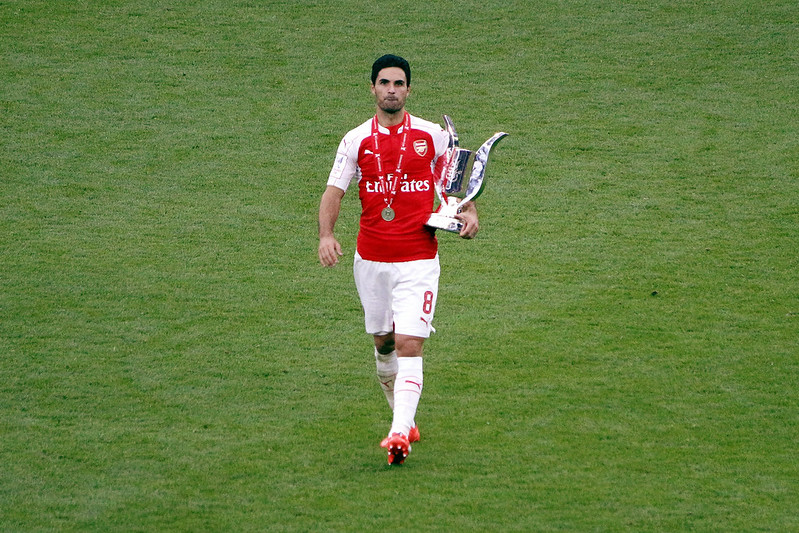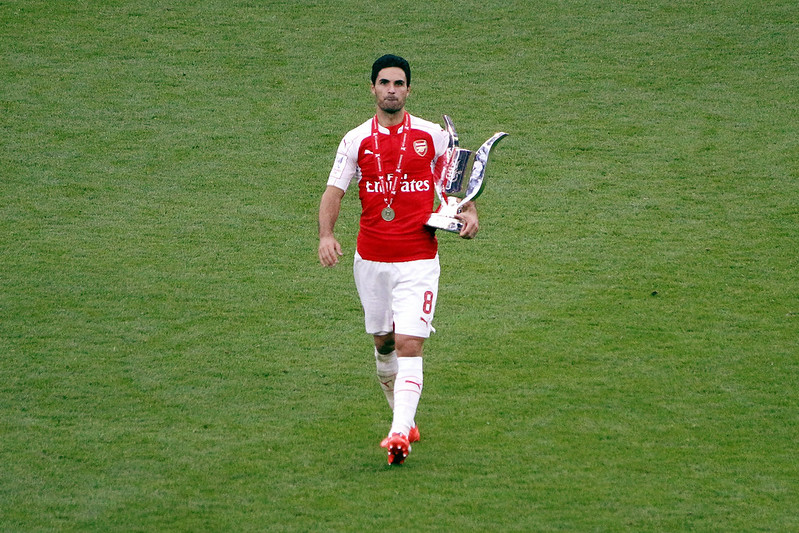
Mikel Arteta looked crushed. He was sat in front of the Arsenal goal mouth at Stamford Bridge, his legs stretched in front of him and his arms resting on either leg. The Arsenal captain glanced to his right to see Oscar, the Chelsea winger, trot away jubilantly towards a Chelsea huddle celebrating the goal he had just scored. Arteta had tried to intercept a Fernando Torres cross from the right from reaching Oscar who was running in anticipating the pass, but had failed. The score was Chelsea 4-0 Arsenal. It was Arsenal boss Arsene Wenger’s 1000th match in charge of the Gunners. The date was March 22, 2014. It wasn’t even half-time.
Chelsea scored 2 more goals in the second half of that game without reply to complete Arsenal’s joint heaviest defeat of Wenger’s Arsenal reign, along with the 2-8 defeat to Manchester United in 2011.
“I don’t know what else to say apart from sorry to everyone at the club, the fans, and we promise that we will try hard to put that right,” said Arteta after the match.
EIGHT YEARS ON
Mikel Arteta emerged from the touchline onto the field. He wore a sombre look. Upon seeing Arsenal’s number 11 to his right however, he broke into a wide grin. “Gabriel!” he exclaimed, walking towards him with his arms outstretched. Martinelli, carrying a water bottle in his hand after a draining day on the field, also approached Arteta and hugged him. “Vamos!” he could be heard crying before walking away from his boss. Arsenal had just beaten Chelsea 1-0 at Stamford Bridge earlier this month, retaining their place at the top of the English Premier League table after 13 matches. They were 2 points ahead of champions Manchester City, who had beaten Fulham 2-1 a day earlier.
“The team showed maturity, composure and confidence and showed real character to impose ourselves on the pitch,” the Gunners boss later said.
“It’s a really young team, but they played as a really mature team and it’s a big step against this opposition.“
CLARITY AND PURPOSE
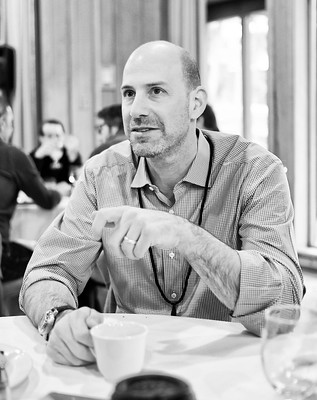
Josh Silverman stood in front of his management team at the headquarters of Etsy in Brooklyn, New York. An alumnus of the Stanford Graduate School of Business, Silverman had just taken over as the CEO of Etsy, an e-commerce company that sells handmade and vintage items around the world. It was May 2017. Etsy’s stock price was at $10. Bigger companies were circling Etsy and it seemed a matter of time before the firm was sold. “I would’ve assigned a maybe 10% chance at that point on the likelihood that we could remain an independent company,” Silverman was later quoted as saying in an interview.
On his first day on the job, Silverman arrived having already identified the single important metric that Etsy had to pursue in order to survive: Gross Merchandise Sales (GMS). GMS, also known as Gross Merchandise Value, is the total amount of sales a company makes over a specified period of time, typically measured quarterly or yearly. In May 2017, Etsy’s GMS — then worth around $720 million — was growing at 11% year-on-year. Silverman decided that was not enough to save the company from being sold.
Silverman realised that the Etsy management had been pursuing 10 or 12 different metrics in its bid to increase revenue, which saw its 800 employees being involved in around 1,000 projects. Silverman said “less than 40%” of those projects had any meaningful chance of improving GMS numbers in the next 24 months.
“If it’s a good idea, it’s a candidate to be on a long list of good ideas from which you’re going to handpick the fewest you need to do,” said Silverman in the interview. “So I picked 1 metric that mattered in our case it’s called Gross Merchandise Sales.”
Silverman installed a new threshold for projects his company would pursue: they needed to produce at least $10 million of incremental GMS in the next 24 months for Etsy to do it. “Now I’m not saying we’ll do everything that’ll produce $10 million of GMS, because that would be too low a bar,” Silverman said.
“I’m not even gonna consider, if it won’t produce 10 million incremental GMS.”
Silverman and his team identified 26 projects that they believed would have a material chance of affecting GMS right away.
By the end of Silverman’s second week in the job, they had stopped over 60% of the projects Etsy had been pursuing. The focus was, and would only be, on GMS.
In the first quarter of 2018, less than one year after Silverman’s arrival in Brooklyn, Etsy’s GMS had almost doubled, growing at 20% year-on-year, worth around $860 million. Six years after his arrival at Etsy, the e-commerce firm is flourishing, with a GMS worth $3 billion — and increase of 316% from $720 million in May 2017.
“If you give a team of talented people clarity of what success looks like and what the constraints are, it’s amazing what they can achieve,” Silverman said, looking back on his team’s achievement.
‘UNITY’
“In modern football Arsenal have a reputation for playing fluent, attacking football,” the interviewer asked Mikel Arteta. “Are you concerned that that identity has slipped?“
The new Gunners boss was being interviewed on his first day on the job by Arsenal’s official channel. Arteta pursed his lips for a moment, before answering: “Unfortunately, yes… We have to make little adjustments and now the timing for training is not a lot, so visually the players have to understand the idea that I want to bring to them. And slowly you’ll see some changes, and to where we want to head on.
“Because the direction is gonna be very clear and it’s not gonna be negotiable. And we need the players to be on board with the right attitude, the right passion and commitment.”
Around 2 years later, ahead of his 100th game in charge of Arsenal, the Spaniard sat down for another interview. “What do you imagine or hope for,” went the question, “to see Arsenal like in another 100 games?”
The Gunners boss, sitting cross-legged, gave an embarrassed laugh. “Football is unpredticable,” he told Arsenal’s official channel in November 2021. “Hopefully, you know, one word. Unity. I would be so happy with that because with that word, I think we can define everything that’s happening. If we have that word that means they are buying into what we are doing, they feel part of it, everybody is enjoying the journey and its growth, its evolution, its passion, it’s enjoyment and fun.”
FIRMLY IN CHARGE
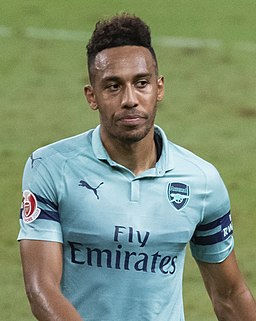
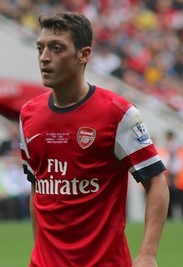
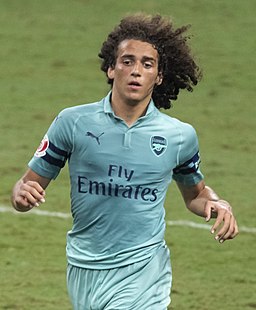
Now in his third full season in charge of Arsenal, Arteta has stayed true to his promise of playing bold, attacking football, and only retaining players who subscribe to the values he espouses. Stars such as Pierre-Emerick Aubameyang and Mesut Özil have been cast aside for falling short of the standards required at London Colney. A bonafide prospect like Mattéo Guendouzi never played for Arsenal again after allegedly taunting Brighton players over their wages during a Premier League game in June 2020.
Emiliano Martinez, a fan favourite at the Emirates, also left the club after Arteta honestly told him he could not guarantee Martinez would be the first-choice goalkeeper under him. “So I just texted him to say I was going to Aston Villa, so please help me and let me go,” Martinez said later. “He was very honest and very open with me,” the Argentine said. After Aaron Ramsdale’s marvellous form between the sticks, Arteta’s foresight in signing the Englishman from Sheffield United is being lauded.
A FRENCH DEBT
“I had done nothing in football, I was playing for Barcelona B,” said Mikel Arteta recently in an interview to BeIN Sports.
“He saw me play because he was with Athletic Bilbao,” said the Arsenal boss of Luis Fernandez, who coached Athletic Bilbao in the late 1990s. Fernandez, a French former midfielder, would later sign Arteta for Paris Saint-Germain in 2002 when he was coaching the French giants.
“And he taught me at PSG. He had a lot of faith,” said Arteta. “I had to demonstrate I was ready to play at this level. This is why as a manager I love to coach young players because I was one of them. And you have to give them a lot of belief and opportunity. Otherwise it is impossible to see true talent.”
TRUST IN YOUTH
Arteta has done exactly that at Arsenal.
Of the players who started the Gunners’ 2-0 win on November 13 against Wolverhampton Wanderers, 7 were signed by Arteta. Six of them were 25 years old or under when Arteta signed them, with the exception of Thomas Partey who was 27 when he joined Arsenal in 2020.
“I feel really young to be fair because I am surrounded by a lot of young people,” Arteta said in an interview to www.arsenal.com ahead of his fortieth birthday.
“The players are younger than me of course, but some of the people I work with are older than me and they have all the right responsibilities at the club.
“So I’m surrounded by a lot of young energy, a lot of enthusiasm and as well people with more experience so it’s a good mixture.”
IN PARIS AMONG VETERANS
Arteta himself was only 19 when Fernández signed him for PSG on loan from Barcelona in 2002. Fernández is better known today as a member of France’s iconic ‘Le Carre Magique’ (magic square), the quartet of midfielders that inspired Les Bleus to their first international trophy by winning the European Championship of 1984.
Fernández, like Arteta, was a deep-lying playmaker who usually operated at the base of the four-man French midfield, which had Alain Giresse, Jean Tigana and Michel Platini as its 3 other members. Despite Arteta’s youth, Fernández played the Spaniard in 42 of PSG’s matches that season, 37 of them being starts.
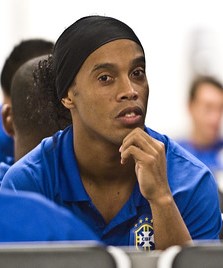
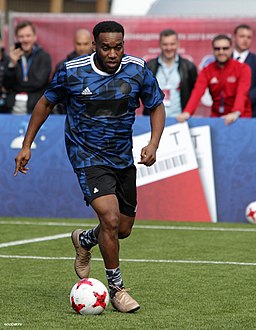
That Paris side had talents such as Ronaldinho, Jay-Jay Okocha, Gabriel Heinze and Mauricio Pochettino among its ranks.
“At that moment in Paris it was a big challenge to move away from my country, without speaking the language,” recalled Arteta to www.arsenal.com. “To go into a team that was full of stars but with a coach (Fernández) who lifted me and gave me an amazing opportunity. Then you have to have the personality and character to impose yourself and grab it.”
Fernández was so influential on Arteta that in his BeIN Sports interview, he cited the Frenchman as being his “biggest inspiration.” “When I was talking about inspirations, I must say that Luis was the biggest in football,” Arteta said.
TOUGHENING UP IN GLASGOW
When the teenage Arteta’s loan spell at PSG ended, Fernández was determined to make his transfer to Paris permanent, but Arteta chose to join Scottish giants Rangers instead. In 2 seasons in Glasgow, Arteta helped the Gers to an historic treble of the Scottish Premier League, Scottish Cup and Scottish League Cup in the 2002-03 season.
“Scottish football was tough, really tough. It was really physical, people got at you and I had to improve on that a lot. I think I did that to get to the level that the Premier League required of me.”
Mikel Arteta on his 2-year spell at Rangers
“At that moment, Rangers were a big club, with big players, playing in the Champions League,” Arteta later told Arsenal’s official website. “It wasn’t easy to find another club like that so I took the chance to go there. Scottish football was tough, really tough. It was really physical, people got at you and I had to improve on that a lot. I think I did that to get to the level that the Premier League required of me.”
Though Arteta later credited Scottish football for toughening him up as a footballer, his time at Rangers drew to a close when Gers boss Alex McLeish was unable to play the Spaniard in his favoured central midfield role.
Martin Bain, who was then Rangers’ director of football business, told the club’s official website, “Mikel… said that by not playing in his preferred role, it would be detrimental to his continuing international improvement and that his aspirations would not be fulfilled.”
DAVID MOYES AND THE UNDERDOG SPIRIT
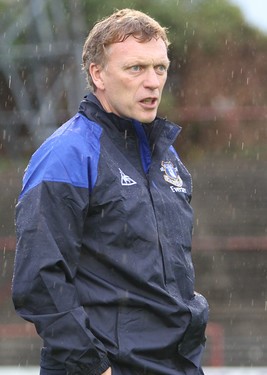
Arteta subsequently departed Scotland to join Real Sociedad, where he failed to establish himself in the team. However, English football threw him a lifeline and David Moyes signed him for Everton. Initially joining Everton on a six-month loan, Arteta stayed there for 6 years.
“I think he made me a better person, made me mature in the earlier stages of my career,” the Spaniard later said of Moyes’ influence on him. “He was really demanding and challenging but at the same time really, really supportive.”
While Moyes may not have had much of an impact on the style of play Arteta’s teams would later adopt, the Scotsman influenced his pupil in other ways.
“I really liked how he managed the group as well as the individuals,” Arteta said. “He really installed a real belief around the club to be together all the time, to look after each other, and nobody was more important than the team.”
Moyes also fostered an underdog spirit that has served Arsenal well this season.
“What he created at Everton, in that dressing room, it was absolutely phenomenal,” said Arteta. “Because the level of ability that we had, it wasn’t the ability of success that we achieved. That’s for sure.”
Moyes, too, has praised his former ward, calling out critics who he said have unfairly maligned the Gunners boss.
“I think Arsenal have been a really good team for a while when nobody was giving them the respect,” Moyes told talkSPORT Breakfast.
“He’s a real diligent boy, a young manager learning his way, he’ll make a few mistakes along the way, but I did and everybody does when you are in management in the early years,” he said.
BECOMING A GUNNER
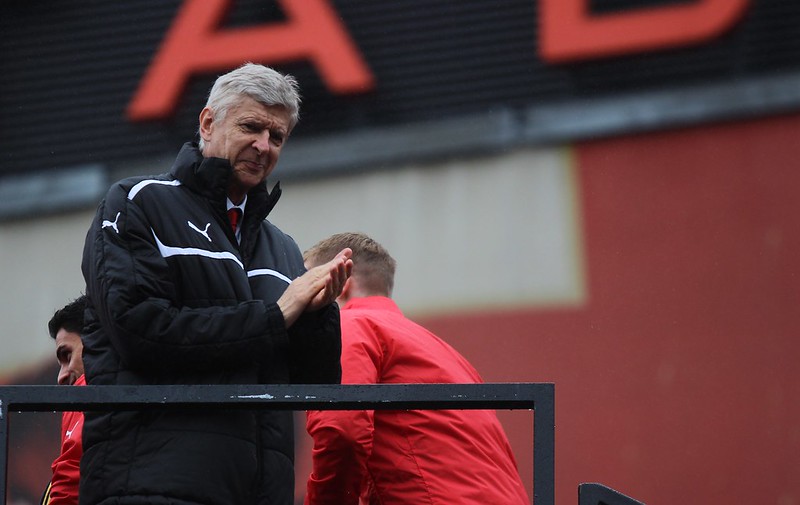
When Arteta joined Arsenal in 2011, it was as a replacement for club captain Cesc Fabregas, who had been sold to Barcelona. However, he insisted he should not be viewed as the new Fabregas, adding with trademark humility: “Cesc was the best player at Arsenal. I have no aim to become that. My target is simply to try to reach my highest level as a player and to help the team.”
Arteta kept his promise, becoming an indispensable presence in Arsenal’s midfield alongside stars such as Tomáš Rosický and Santi Cazorla. He made such an impression on Arsenal boss Arsene Wenger that the Frenchman once called him a “quiet hero” for Arsenal.
“Mikel is a winner, a fighter as well,” Wenger said in 2012. “He possesses both aspects of the game of a real midfielder, that means he can defend and he can attack. He is a quiet hero for us because he always gives you a certain level of quality. He is always 100% focused and committed. He brings the best out of other players.”
WENGER LIGHTS A FIRE
By the time Arteta joined the Gunners, he had already begun preparing for a life in the dugout, doing his coaching badges while in his late 20s. It was in London, however, that Arteta’s desire to turn a coach became calcified. While prepping to get his coaching license, he also started coaching younger players at the Arsenal academy and evaluating how well he was progressing.
“We were all guided and, in a way, felt a different way about the game because we had Arsene as a manager,” Arteta later said. “He started a fire in us to be a coach.”
“Not only in me or probably in Patrick (Vieira), but in many others, with his way of treating everybody at the club and with how he felt the game.”
While Wenger may have inspired Arteta to become a coach, Arsenal’s style of play under the Spaniard seems to belong more to the Pep Guardiola school than the Wenger school.
Five years after joining Arsenal, Arteta retired as club captain, declaring with lacerating honesty that in the months leading up to his retirement, that he had not been “good enough” to represent the Gunners on the pitch.
Though the Spaniard had an offer from Arsenal to stay on as a coach, he chose to go to Manchester to join Guardiola’s backroom staff.
While Wenger may have inspired Arteta to become a coach, Arsenal’s style of play under the Spaniard seems to belong more to the Pep Guardiola school than the Wenger school. The possession-based play and rapier-like counter-attacks remind watchers of the Frenchman’s best Arsenal sides, but the relentless pressing that has choked opposition team’s passing rhythms and smothered them into submission looks more post-2016 City than early noughties Arsenal.
AN APPRECENTICESHIP DECADES IN THE MAKING
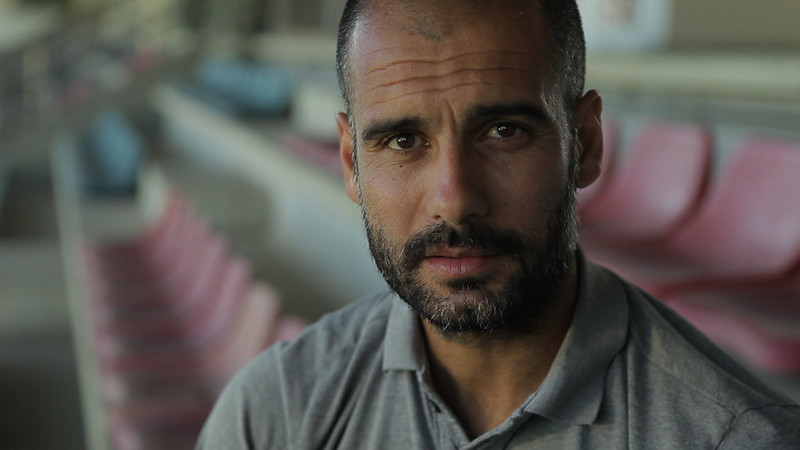
Arteta met Guardiola for the first time when the former was 15 years old. He was in the Barcelona reserve team while Guardiola was the captain of the first team. “We always had a very close relationship,” Arteta later said of Guardiola.
At City, Arteta learnt what it takes to be an elite coach and what it means to compete at the highest level. “The standards that they have set at that club (are) not only to win but to win in a certain way and to win every 3 days,” the Arsenal manager recently said.
“And to be extremely demanding and critical and at the same time supportive.”
City players who trained under Arteta sing his praises. City’s all-time record goalscorer Sergio Agüero was one of the few to tip Arsenal as possible title contenders ahead of this season.
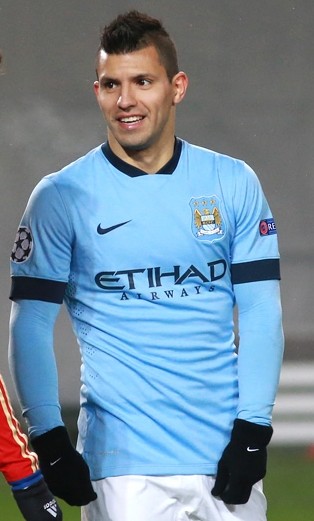
“My candidates (to win the title) are Manchester City, which I think can repeat, Liverpool, Chelsea and I add Arsenal, which has strengthened very well and has had great games in the pre-season,” he told Stake.com.
“Everything will be very even, as it has been happening, but we will have to be attentive to Arsenal’s performance, which has put together a great project with the help of Arteta and I think that this year they will give people something to talk about.”
Phil Foden, who also trained under Arteta, called the Spaniard an “unbelievable” coach. ““I remember working with him closely after training on some things I needed to improve. I know how good he can be as a coach,” Foden told Amazon Prime Video.
While Guardiola himself has played down his influence on Arteta’s managerial career, remarking recently that he had learnt more from the former Arsenal captain than the other way around, Arteta the manager is very much a coach in the Guardiola mould.
“(Guardiola’s) work rate is incredible.” said Arteta in his first press conference as Arsenal manager. “How inspirational he is to people is incredible, but to me the secret is the players and staff have to believe what you deliver. You have to be able to transmit it and then people will buy into that.
“When you do that, you have a team, everyone is united, and we will be strong.”

